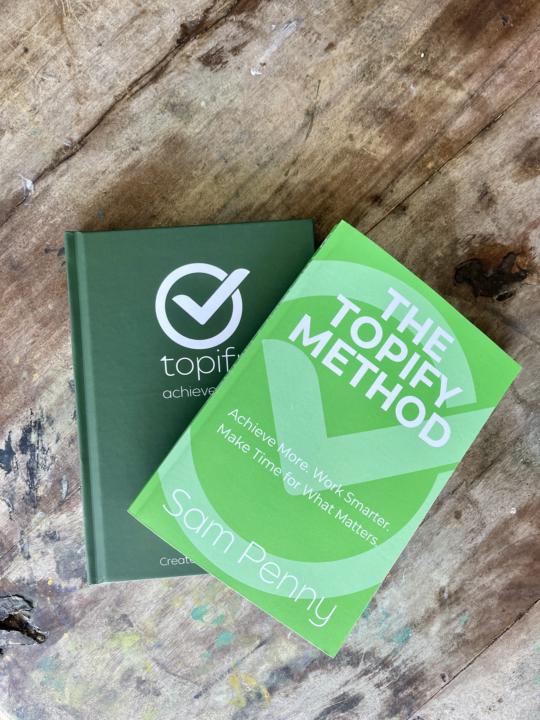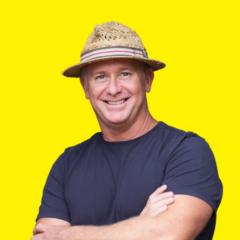Activity
Mon
Wed
Fri
Sun
Oct
Nov
Dec
Jan
Feb
Mar
Apr
May
Jun
Jul
Aug
Sep
What is this?
Less
More
Memberships
Self-Publish Non-Fiction Books
419 members • Free
8 contributions to Self-Publish Non-Fiction Books
To Footnote or Not to Footnote
I’ve written a personal commentary on Revelation with unique perspectives that I’m supporting with massive amounts of Scripture and Jewish tradition. I see my ideal reader as a mature Christian who would love to dive deeply into the end times and the entirety of the Word of God. My developmental editor has suggested that I convert the many parenthetical citations to footnotes, but I worry that footnotes would be an immediate turnoff for almost all who are not biblical scholars. I’m not a biblical scholar, and so that’s the last thing I want. In fact, I suspect that my book will fail to appeal to scholars who spend far more time reading and meditating over books about the Bible than in the Bible itself. And that’s not my audience. So my question is, assuming you are not a scholar, what would be your preference for citation style? Thank you!
Poll
6 members have voted
2 likes • Jun 17
@Jeremy Shapiro Alas, I'm not 100% decided. In a group of people who came quite close to my target audience, they were much more leaning toward footnotes, and so, with my Zondervan developmental editor (Zondervan is a big name in Christian publishing) saying the same thing, I am leaning toward footnotes. Looking at books in the same genre, most I've seen so far have a mixture of parenthetical and either foot- or endnotes. So that's far from definitive. And y'all are leaning away from footnotes. I want to look at more examples, and there is a Christian bookstore in Nashville that I should visit next time I go. And I may test one of my chapters to see how much having footnotes vs. endnotes would add to the length.
What's Your Brand Promise(s)?
In the spirit of this week's BL livestream on branding... one of the things we didn't get to cover during that great hour is the importance of being really clear on -- and communicating to your audience -- your brand promise(s). In his book, A Branded World, branding and PR expert, Michael Levine, writes, "... a brand -- particularly a successful brand -- is a series of promises being not only met but exceeded..." For BMW, that's "The ultimate driving machine." For Coca-Cola, that's "To inspire moments of optimism and uplift." For Coors Light, that's "The world's most refreshing beer." For Apple, that's "Think different." You get the idea. I'm working on my new (re)brand identity and, this week particularly, the promise aspect of it. So far my drafts include: "repeatable, scalable, aligned marketing strategies" -- or -- "putting the fun (back) into marketing" -- or -- "No more faking it. Just making it." Still working on it; that's where it is today. 👉We all have such different brands. How are you framing/communicating your promise(s)?
2 likes • May 16
@Michele Rosenthal I help scripture-loving Christians understand exactly what the Bible says about the end times by viewing the last days through the framework of the birth in Revelation 12 in order that they may master the whole book of Revelation and understand how to become firstborn in the resurrection with a double portion of God's eternal inheritance, the gold that pays dividends for all eternity. That seems like such a mouthful! And it is. It's complicated. So I imagine I'll just be using the brand promise as the catchphrase. I plan to market through YouTube, and so I expect to be saying my catchphrase at least at the beginning of every video and probably again near the middle or end. Though there are lots of competing books, I know of no big YouTube channel exclusively dedicated to the biblical end times. Lots include end times among other things, but I cannot think of a single one where that is the sole focus. My framework for understanding the end times will be radically different from most of the competition because of the focus on the birth in Revelation 12 and the unique and numerous connections to other passages in scripture and to Jewish feasts and traditions.
(Viral) Book Trailers? [6-step process]
When I self-published my trauma memoir in 2012, my trailer was ~3 minutes long. (To be fair, attention spans were longer back then, lol!). It told a very compelling, emotional story in video images and text. Blech! Too long, too yuck. I would never do that today. Which has me thinking.... How do we pack a "you-need-this-book-NOW!" punch in today's world, where the sweet spot for a (non-fiction) book trailer is more like 30 seconds? Maybe, we combine the USP and credibility of our NF selves, and then borrow from YouTube viral methodologies to deliberately create a trailer that has components that encourage virality. For example, Adley Stump is incredibly successful at creating viral videos. Her company, Viralish, works with top brands to develop viral videos across many platforms. Two weeks ago she gave a great interview that outlined how to craft a viral video. (You can watch here: https://www.youtube.com/watch?v=NyyF7k_n4H4&t=518s) Adley's super fun to listen to and very articulate; anyone who likes marketing can learn a lot from this converation, and not just in the video realm. -- Actually, even if you don't like marketing you can learn a lot and have fun doing it with that URL. -- Anyway, Adley offers a simple, 6-step formula: 1. hook -- audience-grabbing idea delivered in the first 3 seconds 2. suspense -- open a curiosity loop (Adley calls it an 'itch', but don't scratch it) 3. pay off - resolve curiosity (scratch the itch) 4. raising the stakes -- make people care 5. engagement tactics -- include something that makes people comment on the video 6. split test -- i.e. on IG do trial reels to see which video hits best Definitely thinking about how I might incorporate these ideas into the trailer for my next book. And also, other marketing collateral I create along the way. Very interested to hear how anyone else is approaching this topic in 2025.... 🎥😁
2 likes • Apr 26
Thumbnails and titles are extraordinarily important, too, assuming you're posting the trailer to YouTube. Without great thumbnails, no one will click. You want to create a curiosity loop with your thumbnail (most especially) and title that will make scrollers stop and pay attention, wanting to know what the answer is or what you mean. The first step is getting the click. The next big step would be the hook, which could be as simple as repeating the curiosity loop of the thumbnail and title. Certainly, you will want to repeat immediately to assure viewers you will fulfill that loop. And you could answer that question right there and then open another curiosity loop. The length of the trailer could still be long, especially if we are asking the viewer to read a whole book, but the video should frequently be opening and closing these loops of curiosity. I agree with Eric that StoryBrand is an excellent tactic, too, for nonfiction authors, identifying the pain that the reader experiences and then showcasing the solution to that pain, giving a bit of evidence for why your book really does solve their problem. I've certainly used the StoryBrand method to build my book blurb and in several places on my website.
3 likes • Apr 26
Oh, I just went to YouTube to see if I could find viral book trailers, hoping to see what they did and learn from them, and I found this advertisement for stock book trailers. Not sure if that would be your thing, but it could be worth looking into... https://www.storyblocks.com/templates/search/book%20trailer%20nonfiction?search-origin=search_bar
5 likes • Mar 28
I just finished and loved "The YouTube Formula: How Anyone Can Unlock the Algorithm to Drive Views, Build an Audience, and Grow Revenue." It was definitely one of the best nonfiction books I have read in a long time. Three things stood out: 1) the conversational and upbeat tone, 2) the amazing and inspiring stories of transformation, and 3) the concrete, actionable advice.
Newbie from the Sunshine Coast!
Hi everyone, I'm a newbie here, 24hrs in. Love this platform! I've watched a lot of Julie's videos which led me here. I only launched my books and productivity planners last week so in a massive learning curve. I haven't been able to get to promotion yet as still getting final touches on website, KDP, etc. There's so much to do! Anyway, I am looking to forward to being part of this journey with everyone inside this community. Thank you @Julie Broad for creating it. I love what you do. Sam.

1-8 of 8
@ellen-smyth-6130
Hi, I'm Ellen Smyth. I'm working toward publishing The Birth of Revelation, a commentary from the perspective of the birth in Revelation 12.
Active 99d ago
Joined Mar 10, 2025
Powered by




